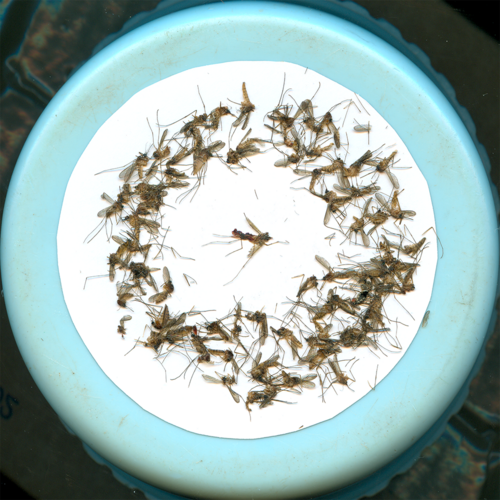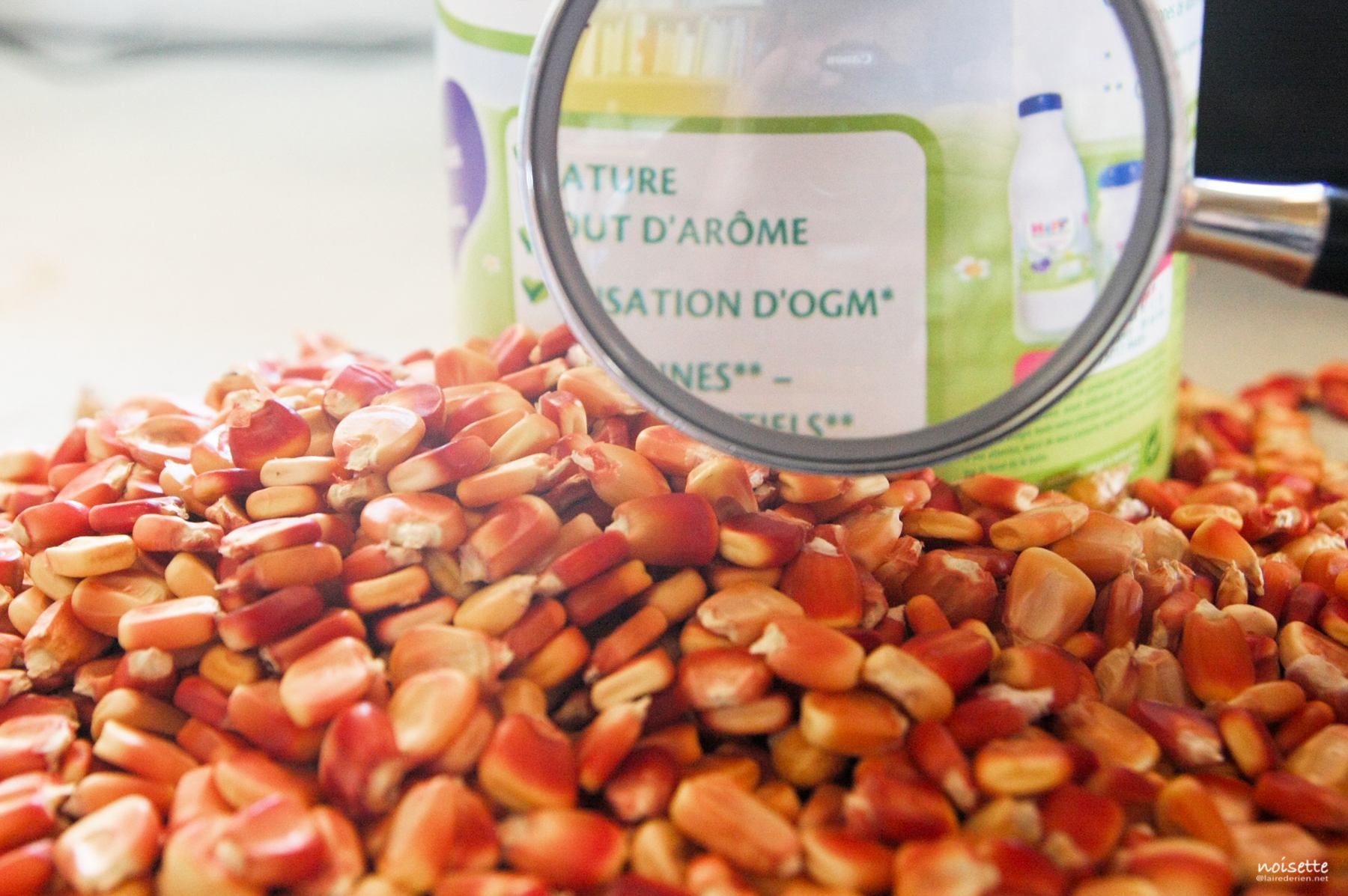GMO : the Commission is losing supports

For the two years, the European Commission has apparently been losing several supporters to its project to deregulate many GMOs. The concerns of several member states came to light on March 16, 2023, during a meeting of European environment ministers.
A week before the European Council of Environment Ministers on March 16, 2023, Austria sent a note to the Member States entitled: “Regulation of plants obtained by new genomic techniques – need for further discussions respecting environmental aspects” [1]. This country has obtained that this note be discussed at this meeting.
Austria blames the Commission for its lack of scientific seriousness
In its note, Austria criticizes the European Commission for having initiated a work on a possible new framework for GMOs on the basis of “vague and yet insufficiently elaborated concept”. Austria recalls that a possible change in the regulation of genetically modified plants by “mutagenesis and cis-genesis, currently covered by the legislation on genetically modified organisms” was the subject of an initial impact assessment by the Commission in 2021 [2] . The Commission then conducted a public consultation [3] , which was followed by a new impact assessment based on additional consultations with citizens, stakeholders and Member States [4] [5].
These consultations, which were strongly criticized for their partiality by many environmental and farmers’ organizations, did not satisfy Austria, nor Hungary or Cyprus which had previously announced that they shared the Austrian view. Austria regrets that the impact assessment was “mainly done by using a questionnaire, which was to a large extent based on expectations, assumptions and suggestive scenarios, rather than on data and scientifically sound methods”. Austria points out that the questionnaire led to a number of member states not being able to answer the questions or even refusing to answer. It considers “the results of this survey cannot and should not be the basis for any future policy actions on plants using new genomic techniques in the European Union”. Austria also denounces a lack of scientific data on the part of the European Commission. It refers to the opinion of the European Food Safety Authority (EFSA), published in October 2022, on the risk assessment criteria for plants obtained by “mutagenesis and cisgenesis”. From this opinion, Austria explains reading that according to the experts, “before the proposed risk assessment criteria could be applied, many aspects required further development and definition […] In particular with regard to the environmental risk assessment, many questions remain open, as the EFSA considers them to be overly vague”.
In its note, Austria therefore asks the European Commission “to conduct a comprehensive impact assessment based on solid data rather than assumptions”. It also wants the Commission to finance concrete research in the areas of biosafety, impacts on biodiversity and detection of products from these new techniques. Finally, Austria would like the Swedish Presidency of the EU to convene an ad hoc working group “in order to facilitate discussion involving all concerned areas (environment, health and agriculture), following the scope of the current GMO legislation and taking into account the responsibilities of the different competent authorities in the Member States”.
Eight countries in support of the Austrian request
Of the twenty-six other member states represented at the Council of Environment Ministers on 16 March 2023, eleven did react to the Austrian request [6]. Hungary and Cyprus logically reiterated their support. Luxembourg considered it “of the utmost importance that the safety level of all GMOs, including plants obtained by directed mutagenesis and cisgenesis, for humans and animals as well as for the environment remains high”. For this country, the “primacy of the precautionary principle” must be maintained, particularly for potential effects that are still unknown, whether they are long-term or undirectly linked to the use of these new techniques. Luxembourg also insisted, as it had already done in 2021 [7], on its desire to have “comprehensive labelling allowing consumers to make an informed choice”.
Germany also took the floor to support Austria’s request. For this country, the way “we deal with new genomic techniques in the EU is very important for many stakeholders, starting with the research, production, trade and consumers and of course for the environment and protecting Nature”. Wishing that “the freedom of choice and coexistence of different farming systems” be respected, Germany has asked the European Commission for its “intentions […] regarding labelling, freedom of choice and coexistence”. As for the scientific gaps, Germany shares the Austrian point of view. It wanted to know more about the scientific concepts behind the European Commission’s approach. Finally, Belgium, Slovenia, Estonia and Slovakia have also taken a more or less clear position in support of the Austrian request.
Only three other countries took the floor to support the European Commission: the Netherlands, Denmark and Lithuania. They did not comment on the request of the nine countries for a more solid scientific basis to move forward. These countries felt, as did Lithuania, that “the existing regulation is not sufficient given the scale of the climate and biodiversity crisis. Innovative techniques could provide the solution”.
France keeps silent, the Commission defends itself… against the facts
The other fifteen Member States, including France, did not express themselves during this discussion. France had however previously declared its “full, full” support for the European Commission in May 2021, during a discussion by the Ministers of Agriculture [8]. But, in March 2023, it chose not to take the floor to reiterate this support. Already, on December 20, 2021, during a Council of Environment Ministers, it had relativized the position stated seven months earlier and declared that it wanted the regulatory framework to respect “the principles of proportionality and precaution”, to be “rigorous and transparent” and to ensure consumer information, traceability, labelling… France had then concluded that the very need to change the regulatory framework was still under debate [9]. The positions defended in Brussels by France on the subject of GMOs are decided at an inter-ministerial level, under the arbitration of the Prime Minister. The fact that France did not speak out on March 16 casts doubt on whether it will support the European Commission’s approach. Other Member States, also supporters of the European Commission in 2021, have also remained silent, such as Portugal, Spain and the Czech Republic.
Reacting to the round table discussion on the Austrian note, the European Commission tried to defend its method. It recalled that it had organized “wide-ranging consultations and targeted surveys with citizens, Member States, stakeholders across all relevant sectors [via] structured interviews and focused group discussions”. Similarly, “experts [from the Member States] have been also invited several times to share their views on the topic, including on issues Austria has enlighted, such as the most appropriate approach to risk assessment” [10]. But during this exchange, the Commission also stressed that “EFSA has also accommodated the latest scientific evidence […]. Our policy actions will of course be based on the latest scientific knowledge, involving a precautionary principle approach”. These assertions by the European Commission are tendentious, to say the least: the European experts have explained that the European Commission did not ask them to produce a scientific opinion as exhaustive as it claims (see box)… A lack of exhaustiveness underlined by Austria which reproaches it.
What’s next ?
Since the meeting of the Ministers of Agriculture in May 2021, the supports expressed for the European Commission’s approach have only decreased. It must be said that the context has changed over the past two years. Recently, the Court of Justice of the European Union (CJEU) ruled that any technique that generates genetic modifications of a different nature and at a different rate than those resulting from traditional techniques are regulated GMOs. However, this same ruling has widened the net allowing multinational seed companies to hope to make the GMO character of their products administratively invisible [11]. It is therefore possible that some Member States share the analysis of some stakeholders that a change in the regulatory framework to exempt many GMOs from risk analysis or labelling requirements is no longer as urgent as it was in 2021.
Another major change is that actors who were not heard of before are speaking out. In the fall of 2022, for example, many European distributors and supermarket chains, mainly German and Austrian, spoke out to demand that all GMOs, whether transgenic or derived from new genetic modification techniques, be correctly labelled [12]. In February 2023, in an article published by Inf’OGM [13], the Confédération Paysanne denounced – once again – the risk that, in the absence of a regulatory framework and in particular of labelling and traceability of GMOs obtained by new techniques, the associated patents would extend to plants resulting from peasant or traditional breeding. Finally, some seed companies have also spoken out since the beginning of the year to denounce that the new techniques of genetic modification could become “the Trojan horse of the privatization of life” [14].
It remains to be seen whether the Commission meeting on June 7 will allow it to adopt a finalized proposal and whether the Swedish Presidency of the EU (which ends at the end of June) will organize the ad hoc working group requested by Austria. To date, Sweden has replied to Inf’OGM that it has simply “taken note of the Austrian request”. Without a response from Sweden, it will be the next Presidency, held by Spain, that will have to answer and organize the continuation of these discussions.
The European Commission limits the scientific scope of its experts’ work
To justify the scientific seriousness of its preparatory work, the European Commission reminded the Member States, on 16 March 2023, that “EFSA has also accommodated the latest scientific evidence”. In doing so, the Commission refers to an opinion that the EFSA produced, at the request of the Commission, in October 2022, on the criteria for the risk assessment of GMOs obtained by “directed mutagenesis, cisgenesis and intragenesis”. Doing so, the Commission can claim to have a recent scientific opinion. But this claim is exaggerated, to say the least. In fact, another document has been published along the EFSA opinion, a document that reports on the comments received by the European experts as well as the answers they have given [15].
It is informative because it shows that the European Commission has limited the mandate of the EFSA and excluded several subjects that would have deserved to be informed in order to arrive at a more scientifically exhaustive opinion. In detail, the experts thus explain that EFSA “was not mandated to…” :
« provide a comprehensive literature review on the SDN [site-directed nuclease] based technology and its unintended effects » ;
« describe the risks related to different delivery methods » ;
« compare plants obtained by [new genomic techniques] to those obtained through […] natural processes » ;
« conduct a full literature search on cisgenesis and intragenesis » ;
« evaluate the target specificity of SDN tools » ;
« provide a complete list of all the requirements and criteria for risk assessment of cisgenic and intragenic plants » ;
« express an opinion on how cisgenic/intragenic plants should be risk assessed » ;
« discuss the unintended effects caused by the SDN processes ».
This last point is enriched by a comment from the EFSA. The agency does not deny the existence of unintended effects linked to the use of techniques using proteins that cut DNA at supposedly “precise” locations (“site-directed nucleases” (SDN)). On the contrary, it recalls that “the characterization of the unintended effects caused by the SDN process, which is part of the molecular characterization step of the risk assessment, is a requirement laid down in [regulation] 503/2013 and EFSA guidances”. A requirement that “is still considered necessary for plants generated via SDN-based methods” by EFSA.
[1] Document 7054/1/23 REV 1 from Austria
[2] , « La Commission lance une procédure pour déréguler certains OGM », Inf’OGM, 7 October 2021
[3] , « Nouveaux OGM : la Commission européenne en mal de soutien », Inf’OGM, 2 November 2021
[4] ,
, « OGM : une consultation biaisée menée par un cabinet d’études », Inf’OGM, 13 October 2022
[5] , « Public consultations ahead of deregulation of new GMOs? », Inf’OGM, 22 August 2022
[6] Environment council, 16 march 2023, https://video.consilium.europa.eu/event/en/26710
[7] , « Dérèglementation des OGM : la France « soutient pleinement » la Commission européenne », Inf’OGM, 23 June 2021
[8] ibid.
[9] , « Les ministres de l’Environnement pour l’étiquetage des OGM non transgéniques », Inf’OGM, 18 January 2022
[10] ,
, « OGM – La justice européenne ouvre la porte à la déréglementation », Inf’OGM, 9 February 2023
[11] ibid
[12] , « Nouveaux OGM : les supermarchés européens pour un étiquetage strict », Inf’OGM, 24 October 2022
[13] , « Cour de justice de l’Union européenne : le roi des OGM est nu », Inf’OGM, 13 March 2023
[14] , « Some seed companies are opposing patents but… », Inf’OGM, 29 March 2023
[15] AESA, « Public consultation on the updated scientific opinion on plants developed through cisgenesis and intragenesis », 17 October 2022.













